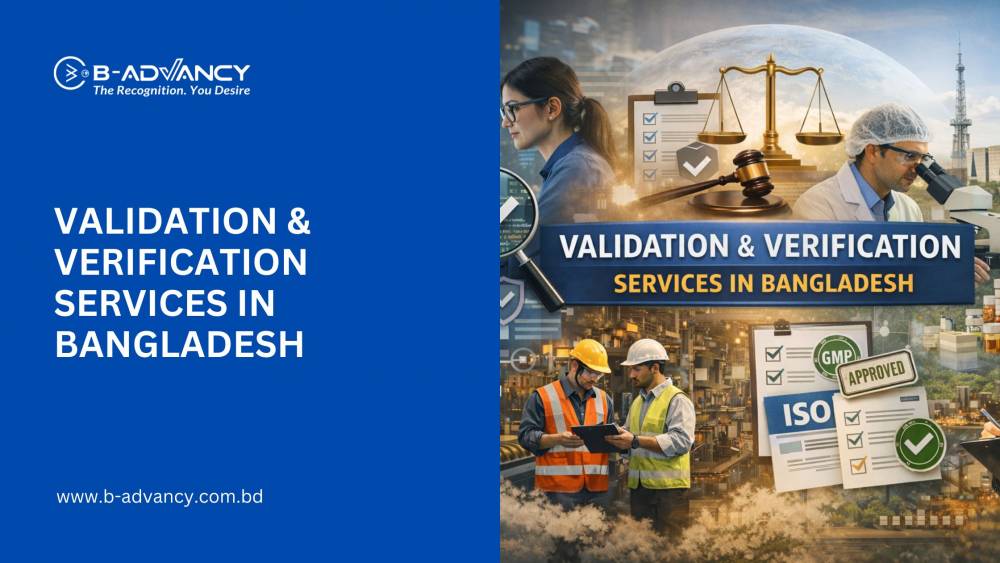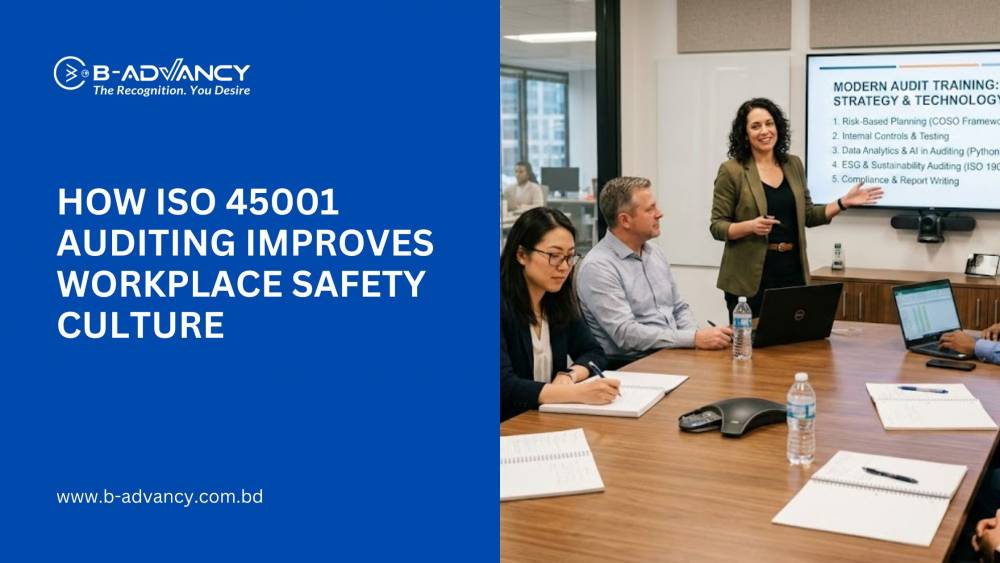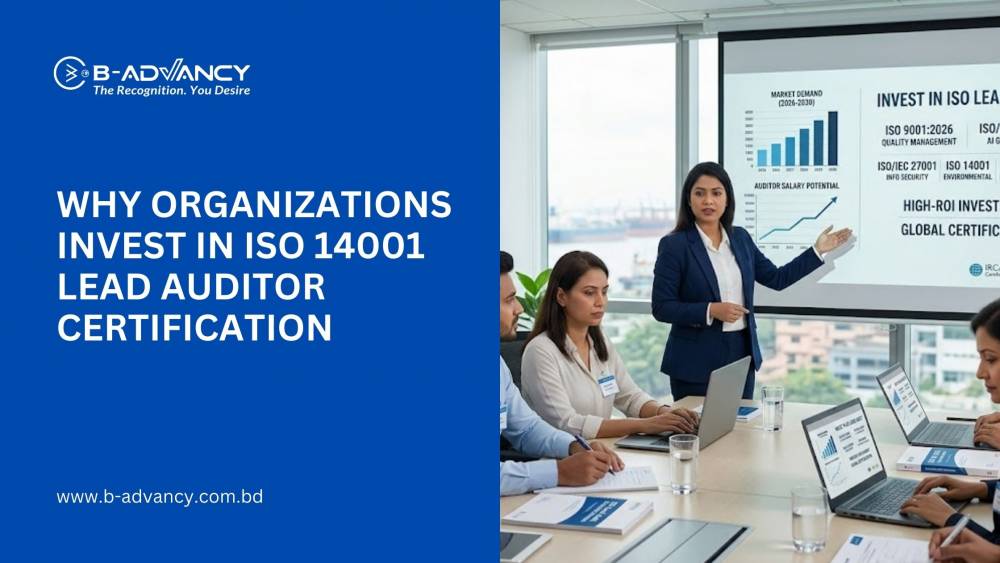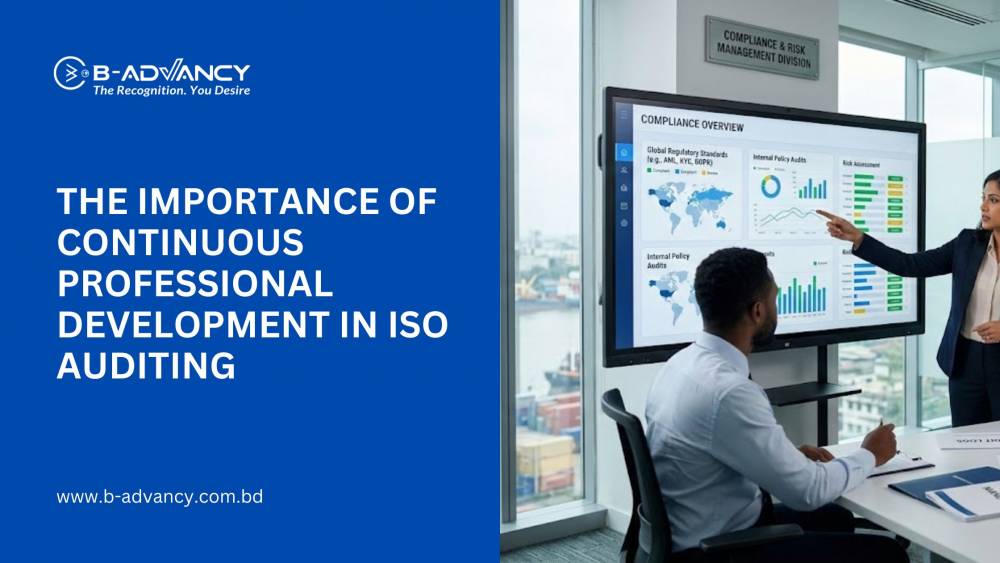The hospitality industry in Bangladesh is a key driver of the economy, contributing significantly to tourism and employment. With increasing competition and the growing expectations of global travelers, maintaining high standards of service, safety, and sustainability is crucial. ISO certification offers a powerful tool to meet these standards, providing a globally recognized benchmark for excellence. In this blog, we will explore the importance of ISO certification for the hospitality industry in Bangladesh, the specific ISO standards that are applicable, the benefits they offer, and how you can begin your certification journey with B-ADVANCY Certification Limited.
What is ISO Certification and Why is it Important for the Hospitality Industry?
ISO certification is an endorsement from the International Organization for Standardization (ISO) that a company adheres to one of its internationally recognized management system standards. For the hospitality industry, ISO certification demonstrates a commitment to quality, safety, and environmental responsibility, which are critical in building trust with guests and stakeholders.
In Bangladesh, the hospitality sector includes hotels, resorts, restaurants, and other service providers. ISO certification can help these businesses meet international standards, improve operational efficiency, and enhance guest satisfaction. Furthermore, it opens doors to international markets and partnerships by aligning with global benchmarks, which is increasingly important in a competitive global economy.
Key ISO Standards for the Hospitality Industry
Several ISO standards are particularly relevant for the hospitality industry in Bangladesh:
ISO 9001:2015 - Quality Management Systems
ISO 9001:2015 provides a framework for a robust quality management system (QMS) that ensures services consistently meet customer and regulatory requirements. This standard helps hospitality businesses maintain high service quality, improve guest satisfaction, and streamline operations.
ISO 22000:2018 - Food Safety Management Systems
For hotels and restaurants, ensuring food safety is paramount. ISO 22000:2018 combines the principles of HACCP (Hazard Analysis and Critical Control Points) with a risk-based approach to ensure that food served is safe for consumption. This standard is crucial for maintaining high food safety standards in the hospitality sector.
ISO 14001:2015 - Environmental Management Systems
The hospitality industry has a significant environmental impact, particularly in terms of resource usage and waste management. ISO 14001:2015 helps businesses manage their environmental responsibilities systematically, promoting sustainability and reducing their ecological footprint.
ISO 45001:2018 - Occupational Health and Safety Management Systems
Ensuring a safe working environment is essential in the hospitality industry, where employees are often exposed to physical risks. ISO 45001:2018 provides a framework for identifying and mitigating workplace hazards, ensuring the safety and well-being of staff.
ISO 50001:2018 - Energy Management Systems
Energy consumption is a major concern in the hospitality industry, particularly in large hotels and resorts. ISO 50001:2018 helps businesses optimize their energy use, leading to cost savings and a reduced carbon footprint.
Benefits of ISO Certification for the Hospitality Industry in Bangladesh
Improved Service Quality and Guest Satisfaction
ISO certification ensures that hospitality businesses consistently meet high standards of service quality. This leads to increased guest satisfaction, positive reviews, and repeat business.
Enhanced Operational Efficiency
Implementing ISO standards allows hospitality businesses to streamline their processes, reduce waste, and minimize errors. This leads to cost savings, higher productivity, and more efficient use of resources.
Compliance with Regulatory Requirements
ISO standards provide a structured approach to meeting local and international regulations, which is critical in the hospitality industry. Compliance helps avoid legal issues and ensures continuous operation.
Increased Market Competitiveness
ISO certification is an internationally recognized mark of quality that can give hospitality businesses a competitive edge. It helps attract new guests, partners, and investors, both locally and internationally.
Facilitation of International Partnerships
ISO certification aligns hospitality businesses with global standards, making it easier to enter and compete in international markets. This is particularly important for Bangladeshi businesses looking to expand their reach.
Steps to Achieve ISO Certification for Your Hospitality Business
Achieving ISO certification involves several key steps:
Initial Assessment and Gap Analysis
Begin by evaluating your current processes against the requirements of the relevant ISO standard. Identify gaps and areas that need improvement to meet the certification criteria.
Develop and Implement a Management System
Design and implement a management system that complies with the chosen ISO standard. This may involve documenting processes, setting objectives, and training employees on new procedures.
Internal Audit and Management Review
Conduct internal audits to ensure your management system is effective and compliant. Regular management reviews are essential to address any issues and drive continuous improvement.
Select a Certification Body
Choose a reputable certification body, such as B-ADVANCY Certification Limited, to conduct an external audit. Prepare thoroughly for this audit to demonstrate compliance with the ISO standard.
Achieve Certification and Commit to Ongoing Improvement
After a successful audit, you will receive ISO certification. It’s important to maintain and improve your management system to retain certification and continue benefiting from it.
Challenges in Implementing ISO Standards
While ISO certification offers numerous advantages, implementing these standards can pose challenges, including:
Resistance to Change
Employees may resist changes to established processes, especially in long-standing hospitality operations. Effective communication and training are crucial to help staff understand the benefits of ISO certification.
Cost and Resource Allocation
The costs associated with certification, including consulting, training, and auditing, can be significant. However, the long-term benefits of ISO certification, such as improved efficiency and marketability, often justify these initial expenses.
Documentation and Process Management
Maintaining comprehensive documentation can be time-consuming but is essential for successful certification. A well-organized documentation system is key to demonstrating compliance during audits.
B-ADVANCY Certification Limited can guide you through these challenges with expert support, making the certification process more manageable and efficient. To contact them: Email: bangladesh@b-advancy.com | Call: +8801612264559
Important Resources and References
For more information on ISO certification and relevant standards, you can refer to the following resources from Bangladeshi authorities:
-
Bangladesh Standards and Testing Institution (BSTI) - The national standards body of Bangladesh, responsible for developing and implementing standards across various sectors, including hospitality. Visit their website at BSTI.
-
Ministry of Civil Aviation and Tourism - The government body overseeing the tourism and hospitality sectors in Bangladesh. They provide guidelines and regulations that align with international standards. Learn more at Ministry of Civil Aviation and Tourism.
-
Bangladesh Tourism Board (BTB) - The organization responsible for promoting tourism in Bangladesh, offering resources and support for the hospitality industry. Visit their website at Bangladesh Tourism Board.
Conclusion
ISO certification is a strategic investment for the hospitality industry in Bangladesh, offering a pathway to enhanced service quality, operational efficiency, and market competitiveness. By aligning your processes with internationally recognized standards, your business can achieve consistent guest satisfaction, improve employee safety, and gain a competitive edge in both local and global markets. While the certification journey may present some challenges, the long-term benefits far outweigh the initial efforts.





































































































































































































